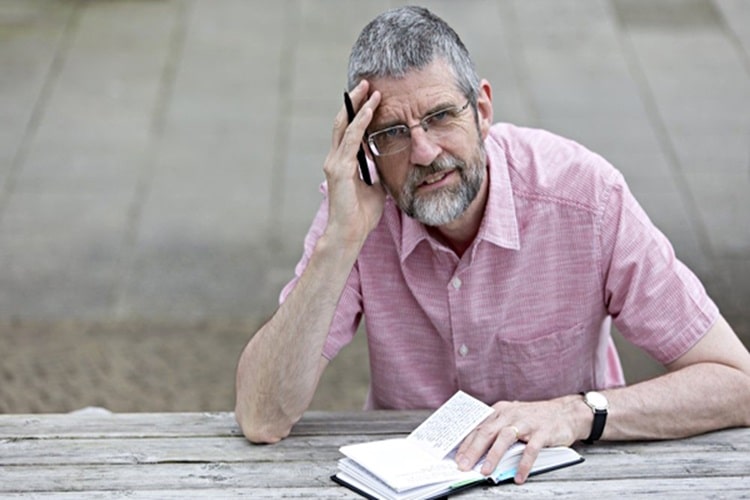Poetic Pathways: Exploring Philip Gross

Philip Gross is a Welsh poet and novelist. Gross won the T.S. Eliot Prize for Poetry in 2009 for his collection “The Water Table.”
Life and Career
Philip Gross was born on 22 February 1952, in Delabole, Cornwall, England. He grew up in a literary household; his father, Michael Gross, was a renowned Anglo-Welsh poet. Gross spent his formative years in Cornwall before moving to Bristol, England, with his family. He attended St Paul’s School in Bristol and later studied English at University College London.
Gross began his career as a freelance writer and lecturer. He taught creative writing at various institutions, including the University of Glamorgan and Bath Spa University. His literary career took off with the publication of his first poetry collection, “The Ice Factory,” in 1984. Since then, he has published numerous poetry collections, novels, and children’s books, earning critical acclaim and several awards along the way.
His poetry is often characterized by its rich imagery, deep introspection, and exploration of themes such as identity, memory, and the natural world. Gross’s work has been translated into several languages and has garnered international recognition.
In addition to his writing, Gross has served as a judge for prestigious literary awards, including the T.S. Eliot Prize and the Wales Book of the Year. Some of Philip Gross’s notable works include: “The Ice Factory” (1984), “The Wasting Game” (1998), “Deep Field” (2011) and “A Bright Acoustic” (2017)
Award and Legacy
Gross won the T.S. Eliot Prize for Poetry in 2009 for his collection “The Water Table.” The T.S. Eliot Prize is one of the most prestigious awards for poetry in the United Kingdom. Philip Gross’s legacy extends beyond the awards he has received. His contributions to literature and poetry are significant for several reasons:
Gross’s distinctive voice, characterized by its rich imagery and introspective themes, has left a lasting impact on contemporary poetry. His works often explore complex emotional landscapes and the intersection of the human experience with the natural world, inspiring poets and readers alike.
Throughout his writing, Gross delves into questions of identity, memory, and belonging. His exploration of these themes resonates with readers who grapple with similar existential questions, contributing to his enduring relevance in literature.
Beyond his own writing, Gross has contributed to the literary community through his teaching, mentorship, and participation in literary events. His advocacy for poetry as a form of expression and his support for emerging writers have helped nurture the next generation of poets.
Gross’s commitment to literary excellence is evident in the depth and craftsmanship of his writing. His ability to craft evocative imagery and explore complex themes with nuance has earned him widespread admiration from readers, critics, and fellow writers.
Observer Voice is the one stop site for National, International news, Sports, Editor’s Choice, Art/culture contents, Quotes and much more. We also cover historical contents. Historical contents includes World History, Indian History, and what happened today. The website also covers Entertainment across the India and World.

